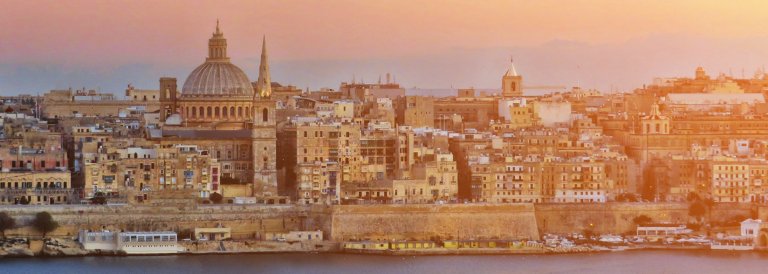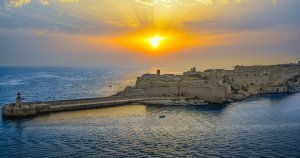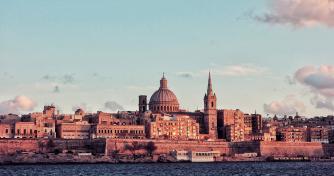 Malta’s Rise to Crypto Prominence, E.U. Proximity Helps Island-State Lead Blockchain Revolution
Malta’s Rise to Crypto Prominence, E.U. Proximity Helps Island-State Lead Blockchain Revolution Malta’s Rise to Crypto Prominence, E.U. Proximity Helps Island-State Lead Blockchain Revolution

Photo by Fredrik Rubensson from Pexels
Malta is emerging as a prominent force in the world of cryptocurrencies. The European island-state has surprised many this year with its continual positioning as a “blockchain economy,” and is now edging over Gibraltar, another economy banking on blockchain for a resurgence, due to the latter’s shaky relationship with the European Union.
As reported by Bloomberg on Oct. 4, the two Western European crypto havens are seeking fresh investments from blockchain-focussed venture funds and digital asset startups. But, it looks like Gibraltar is losing out on the crypto-race due to its deep connections to the U.K.–which recently voted out of the E.U. in a voter referendum last year.
The British colony faces widespread concerns over its regulatory future, and with the already unregulated grey market of cryptocurrencies, entrepreneurs are seemingly seeking options that provide the least resistance and legal scrutiny for their crypto businesses.
Investors and speakers at last week’s Delta Summit in Malta voiced their support for Malta’s foothold in the European single market and stated countries like Gibraltar, even famed Switzerland, lack a similar advantage.
Crypto.com CEO Kris Marszalek noted that Malta is staying in the European Union, a feature that is “not going to change.”
Marszalek added:
“I went to Gibraltar a while ago and they were very open about the fact that they had no certainty about what’s coming–it doesn’t look as if anything has changed since then.”
Malta’s push in the cryptocurrency world has been case study-worthy. From an island known to neighboring states as a beach retreat to one of the world’s only economies supporting the burgeoning cryptocurrency sector.
The country has found its chance to rival economies like Hong Kong and Singapore –two global financial centers that were merely fishing and shipping ports only three decades ago. Their secret sauce? Allowing small and medium businesses to enter their jurisdiction and set highly-supportive regulations that appraise innovation.
In September, Prime Minister Joseph Muscat highlighted Malta is poised to fulfill its “Blockchain Island” dream by setting up fast-track licenses and audit solutions in partnership with “Big Four” accounting firm PwC. The country further considered lowering its 5 percent tax rate for crypto businesses while the Maltese Stock Exchange explores launching digital asset trading on its bourse.

At a recent event, Muscat stated that blockchain technology forms the “inevitable future of money,” and can create a more transparent and equitable society. He asserts that distributed ledger technologies (DLT) can transform the fundamentals of political, civic, and corporate systems.
Muscat also noted the “decades-old problem” of inefficient, corrupted administrative systems serves as the impetus to position Malta as a self-styled blockchain island
Thus far, the country has attracted cryptocurrency exchange players like Binance and OKEx to shift from jurisdictions like Hong Kong to its shores. The trio is reportedly forming a Founders Bank in Malta with the aim of proving financial and banking services to crypto startups.
Meanwhile, Malta’s success is overshadowed by money laundering concerns and relatively high crime rates, with the European Commission preparing a binding guideline for Malta’s financial regulator to enforce on crypto businesses after the country’s unlikely jump to the top.



 CoinGlass
CoinGlass 


 Farside Investors
Farside Investors 






















































































